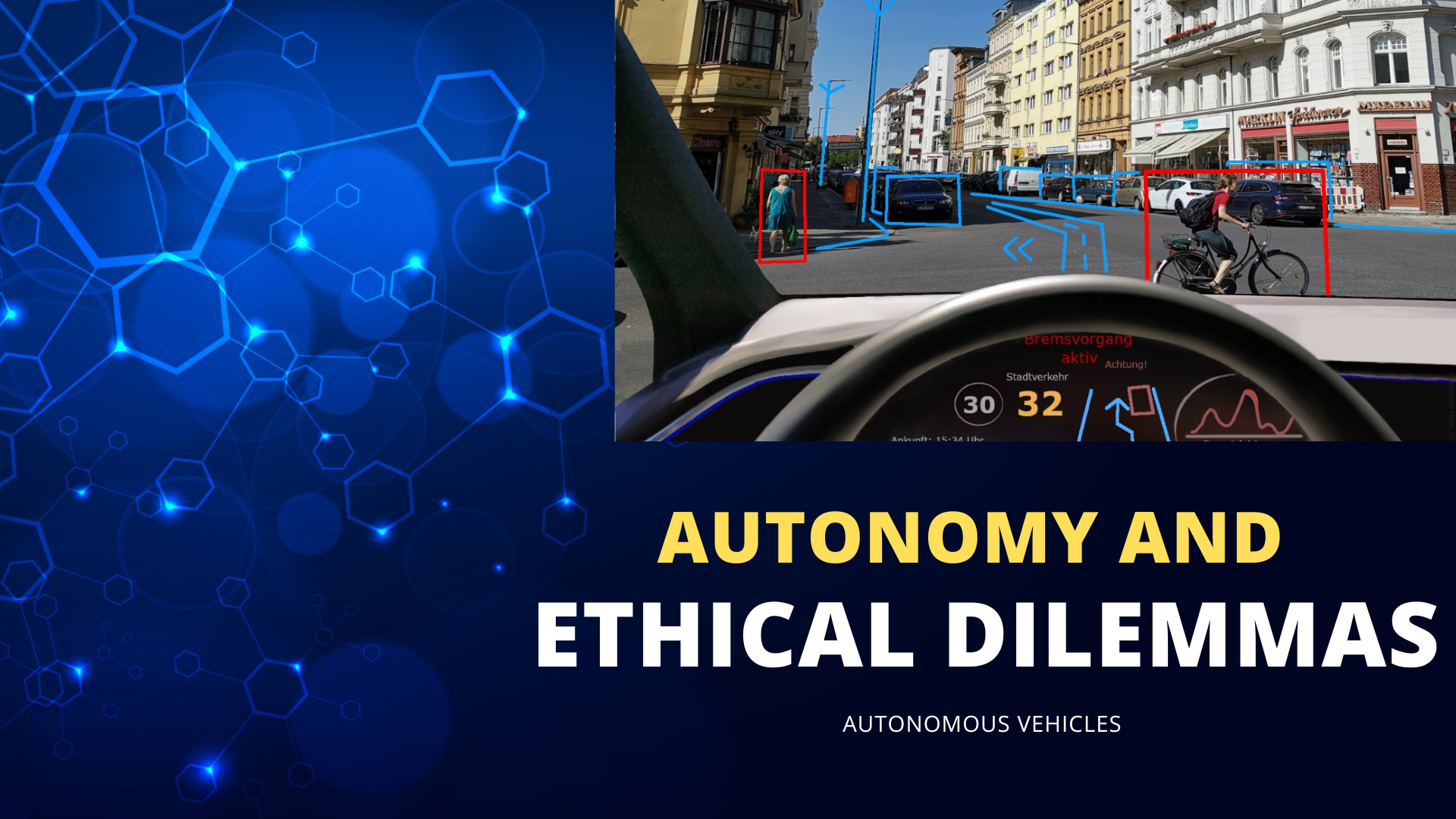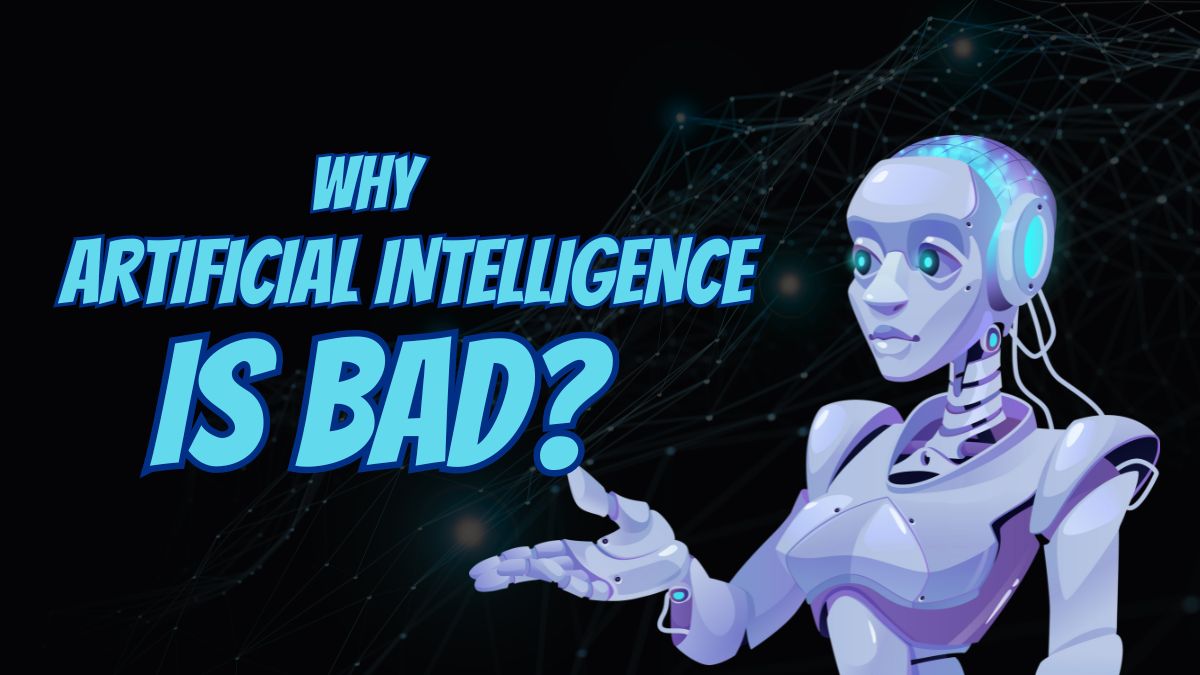In an era defined by technological marvels, artificial intelligence (AI) stands out as one of the most revolutionary creations of our time. Its capabilities, ranging from automating tasks to predicting complex patterns, have undoubtedly transformed various industries. However, beneath the gleaming exterior lies a spectrum of concerns that need to be addressed. In this article, we delve into the darker side of AI and explore why artificial intelligence is bad, shedding light on its negative impacts that are affecting our lives today.
The Erosion of Privacy
One of the prime reasons why artificial intelligence is bad stems from its impact on personal privacy. As AI-driven systems continue to gather and analyze vast amounts of data, concerns about the misuse of sensitive information have risen. From personalized advertisements that seem to know us a little too well to the potential for governments or corporations to exert unwarranted surveillance, the erosion of privacy looms as a significant threat.
Job Displacement and Economic Shifts
While AI promises efficiency and productivity gains, the flip side is the potential displacement of human workers. In considering Why Artificial Intelligence is Bad, many industries are already witnessing the gradual integration of automation and AI-driven processes, leading to job losses for a considerable portion of the workforce. This shift could exacerbate economic inequalities and leave certain demographics unemployed or underemployed, widening the gap between social classes.
Why Artificial Intelligence is Bad: Bias and Fairness Issues
The level of bias in AI systems is determined by the quality and bias present in the data used for their training. Unfortunately, much of the data used in AI training contains historical biases, which can perpetuate and even amplify societal prejudices. From biased hiring practices to discriminatory loan approvals, these systems can inadvertently encode and perpetuate existing inequalities, making AI a potentially powerful agent of injustice.
The Threat to Cybersecurity
The integration of AI into critical systems raises concerns about cybersecurity. While AI can be used to enhance security measures, it can also be exploited by malicious actors to create more sophisticated and potent cyber threats. The cat-and-mouse game between cybersecurity experts and hackers could escalate to unprecedented levels, potentially disrupting essential services and compromising sensitive information.
Autonomy and Ethical Dilemmas
AI technologies, such as autonomous vehicles and drones, bring forth complex ethical dilemmas. The programming of AI to make split-second decisions can lead to situations where a machine’s choice results in harm to humans. Determining the ethical framework for AI decision-making is a challenge, as it requires navigating the nuances of human morality and translating it into algorithmic instructions.

Environmental Concerns
The massive computational power required for AI processes comes with an environmental cost. Data centers supporting AI applications demand substantial energy, contributing to carbon emissions and environmental degradation. The irony of using advanced technology to solve problems while inadvertently exacerbating climate issues raises important questions about the sustainability of AI’s rapid growth.
Unforeseen Consequences and Unintended Behaviors
Delving deeper into the question of why artificial intelligence is bad, we encounter the unpredictable nature of AI systems. Complex neural networks learn from massive datasets, making their decision-making processes difficult to interpret or anticipate. This lack of transparency can lead to unintended behaviors and consequences that even the developers might struggle to comprehend. Such unpredictability poses risks, particularly when AI is integrated into critical systems like healthcare or finance.
Social Isolation and Depersonalization
While AI has connected the world in unprecedented ways, it has also contributed to social isolation and depersonalization. The proliferation of AI-powered chatbots, for instance, can lead to reduced human interactions in customer service and support roles. Additionally, the rise of virtual reality and AI-generated content might further blur the lines between real and synthetic experiences, potentially detaching individuals from authentic human connections.
Why Artificial Intelligence is Bad: Diminished Human Creativity
Creativity is a hallmark of human ingenuity, but the growing reliance on AI for various tasks could diminish this fundamental trait. Tasks like content creation, art, and even music composition are being outsourced to AI algorithms. While AI-generated content can be impressive, it lacks the depth of human emotions and experiences that often drive truly groundbreaking creative works.
Legal and Accountability Challenges
As AI systems become more autonomous and capable of making decisions, questions arise about legal responsibility and accountability. In cases where AI makes a harmful or even fatal decision, determining who should be held responsible can be a legal quagmire. This challenge extends to issues of intellectual property, as AI-generated content blurs the lines of ownership and authorship.
Impact on Mental Health
The pervasive use of AI-driven social media algorithms and content recommendation systems has raised concerns about their impact on mental health. These systems are designed to keep users engaged for longer periods, often leading to echo chambers and information bubbles that can exacerbate feelings of anxiety, depression, and polarization. The constant comparison to idealized AI-edited lives depicted on social media platforms can also contribute to feelings of inadequacy and low self-esteem.
Ethical Consumption and Technological Dependence
AI-driven personalization has transformed how we consume information and make choices. However, this convenience comes at a price. As AI systems tailor content to our preferences, we might inadvertently find ourselves trapped in filter bubbles, only exposed to information that aligns with our existing beliefs. This can hinder personal growth and critical thinking, promoting a narrow perspective that undermines the essence of a well-rounded society.
Navigating the Path Ahead
In navigating the complexities of why artificial intelligence is bad, we must strike a delicate balance between innovation and caution. AI’s negative impacts are multifaceted, encompassing issues of privacy, job displacement, bias, cybersecurity threats, ethics, environment, and more. Acknowledging these concerns and fostering a multidisciplinary dialogue is crucial to mitigate the adverse effects of AI and maximize its benefits. As we continue to integrate AI into various aspects of our lives, we must prioritize transparent development, ethical guidelines, and ongoing research to ensure that AI remains a force for good while avoiding its potential pitfalls.
Unintended Consequences on Education
While AI has the potential to revolutionize education through personalized learning experiences, it also brings forth concerns. The increasing use of AI-powered grading systems might undermine the holistic evaluation of students, reducing education to test scores and quantifiable metrics. Moreover, the automation of teaching processes could lead to a diminished role for educators, neglecting the irreplaceable mentorship and guidance they provide.
Cultural and Artistic Homogenization
AI’s ability to analyze vast amounts of data and predict trends can inadvertently lead to cultural and artistic homogenization. For instance, algorithms that recommend content based on popularity might overshadow niche or culturally diverse creations, perpetuating a cycle of mainstream content consumption. This can stifle cultural diversity and limit exposure to unconventional yet enriching forms of expression.
Technological Fragility and Dependence
As societies become increasingly dependent on AI for critical functions, the vulnerability of this technological infrastructure becomes a concern. Relying heavily on AI systems without robust backup plans can expose us to catastrophic risks in the event of system failures, cyberattacks, or even solar flares that disrupt technology-dependent services. Developing resilient systems that can function even without AI is imperative to mitigate these risks.
Moral Hazard in Decision Making
AI’s ability to predict outcomes and provide recommendations can lead to moral hazard, where individuals and organizations might shift responsibility onto AI-based decisions. For instance, in the financial sector, if AI is solely relied upon for investment choices and those choices lead to losses, the blame might be placed on the AI system rather than the individuals who made the decisions based on its recommendations.
Loss of Traditional Skills
While AI can perform tasks with precision and speed, its advent can contribute to the loss of traditional skills. As more tasks are automated, individuals might gradually lose the ability to perform activities that were once considered essential. Skills like navigation without GPS, mental arithmetic without calculators, and memory recall without search engines might erode, leading to a potential decline in overall human capability.
Erosion of Serendipity and Discovery
AI’s capacity to anticipate our preferences can inadvertently rob us of the joy of serendipitous discoveries. The element of surprise and chance encounters that often lead to unexpected insights might be compromised as algorithms narrow down our choices based on past behavior. This could impact creativity, innovation, and the spontaneous connections that enrich our lives.
Navigating the Complex Landscape
As the discourse around the negative impacts of AI expands, it becomes evident that a comprehensive understanding of its repercussions is crucial. The multifaceted challenges posed by AI’s integration into various facets of our lives demand a holistic approach to mitigate potential harm. Striking a balance between AI’s benefits and its drawbacks requires interdisciplinary collaboration, ethical considerations, and a commitment to ongoing research. By acknowledging the diverse range of concerns surrounding AI, we can proactively shape its development, ensuring that it aligns with our collective well-being and aspirations.
Implications for Democracy and Governance
The rise of AI introduces new challenges to democratic governance. AI-powered algorithms can shape the information we receive, influencing our perceptions and decisions. This can lead to the spread of misinformation, echo chambers, and polarization, eroding the foundation of informed democratic choices. Additionally, the use of AI in political campaigns and decision-making processes raises concerns about fairness, transparency, and the potential for manipulation.
Healthcare Dilemmas and Ethical Quandaries
AI’s entry into the healthcare sector offers both promise and ethical complexities. While AI can enhance diagnostics and treatment recommendations, it also raises questions about patient privacy, consent, and the role of healthcare professionals. Determining who is accountable when an AI-driven diagnosis goes wrong or when patient data is mishandled can create ethical dilemmas that need careful consideration.
Long-Term Socioeconomic Impact
The full extent of AI’s impact on society may not become apparent until its long-term effects unfold. This uncertainty makes it challenging to predict how AI will shape socioeconomic structures, employment dynamics, and even cultural norms over time. Preparing for these changes requires proactive policies that address potential upheavals in the job market and societal structures.
Ethical Use of AI in Warfare
The integration of AI in military applications raises complex ethical concerns. Autonomous weapons systems have the potential to make life-or-death decisions without human intervention, blurring the lines of responsibility and accountability. Striking a balance between leveraging AI’s advantages in warfare and upholding ethical principles of proportionality and discrimination poses a significant challenge.
Privacy Trade-offs for Convenience
AI-driven conveniences, such as voice assistants and smart devices, often require relinquishing personal privacy. These devices collect massive amounts of data, raising concerns about surveillance, data breaches, and the potential for abuse. The trade-off between convenience and privacy becomes more pronounced as AI becomes deeply embedded in our daily lives.
Impact on Developing Economies
The negative impacts of AI are not evenly distributed across all societies. Developing economies might face unique challenges, including a widening technology gap, job losses in labor-intensive industries, and challenges in adapting to the rapid technological changes. Addressing these disparities requires a global effort to ensure that the benefits of AI reach all corners of the world.
Shaping the Future of AI
The question of why artificial intelligence is bad is complex and multifaceted, encompassing a wide range of implications that extend into nearly every aspect of our lives. As AI continues to evolve and integrate into our societies, the need for comprehensive discussions, ethical considerations, and adaptable policies becomes increasingly urgent. Rather than shunning AI, our focus should be on harnessing its potential while minimizing its negative consequences. By addressing concerns related to Why Artificial Intelligence is Bad, fostering a collective dialogue and proactive approach, we can shape a future where AI serves as a force for positive transformation while safeguarding our values, rights, and well-being.
AI Arms Race and Geopolitical Tensions
The pursuit of AI supremacy has sparked an international competition akin to an arms race. Nations are investing heavily in AI research and development to gain a technological edge. However, this race could lead to heightened geopolitical tensions, as countries vie for dominance in AI-related industries, research, and strategic applications.
Unemployment and Reskilling Challenges
The displacement of jobs due to AI-driven automation raises concerns about unemployment on a massive scale. Why Artificial Intelligence is Bad is a question that often comes up in this context. While some argue that AI will create new job opportunities, the transition might be challenging, especially for those whose skills become obsolete. Governments and industries will need to invest in reskilling and upskilling programs to ensure that the workforce remains adaptable and employable.
Emotional Disconnect in Human Relationships
AI’s role in social interactions and emotional connections can be both a boon and a bane. AI-powered virtual companions and chatbots can offer companionship and support, particularly for those who are isolated. However, when considering Why Artificial Intelligence is Bad, the risk lies in replacing genuine human connections with simulations, potentially leading to emotional disconnect and a decline in meaningful interpersonal relationships.
Privacy vs. Public Safety Debate
AI’s application in surveillance and security presents a contentious debate between privacy and public safety. While AI systems can enhance threat detection and crime prevention, they also pose risks to individual privacy rights. Striking the right balance between using AI to protect society and safeguarding individual liberties is a complex challenge that requires careful legal and ethical considerations.
Unbiased Decision-Making in AI
Efforts to eliminate bias from AI systems are ongoing, but complete eradication remains elusive. In the context of discussing Why Artificial Intelligence is Bad, the challenge lies in addressing both explicit and implicit biases present in training data and algorithms. Achieving truly unbiased AI decision-making is a complex task that involves multidisciplinary collaboration, ongoing monitoring, and constant refinement of algorithms.
The Evolution of AI Ethics
The field of AI ethics is rapidly evolving as researchers, policymakers, and ethicists grapple with the moral implications of AI. Establishing universal ethical frameworks that guide AI development and deployment is a significant undertaking. These frameworks must consider cultural differences, philosophical perspectives, and the evolving nature of technology to ensure responsible AI innovation.
A Holistic Approach to AI's Challenges
As we conclude our exploration of why artificial intelligence is bad, it becomes clear that the landscape is vast and intricate. The negative impacts of AI extend beyond individual sectors and touch on the very fabric of our society. Recognizing these difficulties marks the initial stride in tackling them. It requires a multidisciplinary and collaborative approach involving technologists, ethicists, policymakers, and society at large. Only through comprehensive efforts can we navigate the complexities of AI, harness its potential for positive change, and safeguard against its potential pitfalls.
Conclusion
In conclusion, the question why artificial intelligence is bad encompasses a range of complex issues that cannot be ignored. While AI offers remarkable advantages, including enhanced efficiency and problem-solving capabilities, the negative impacts are equally significant. From privacy erosion to job displacement, bias to cybersecurity threats, and ethical dilemmas to environmental concerns, the darker side of AI warrants thoughtful consideration. As we embrace the potential of AI, we must simultaneously address these challenges to harness its benefits without falling victim to its pitfalls.








